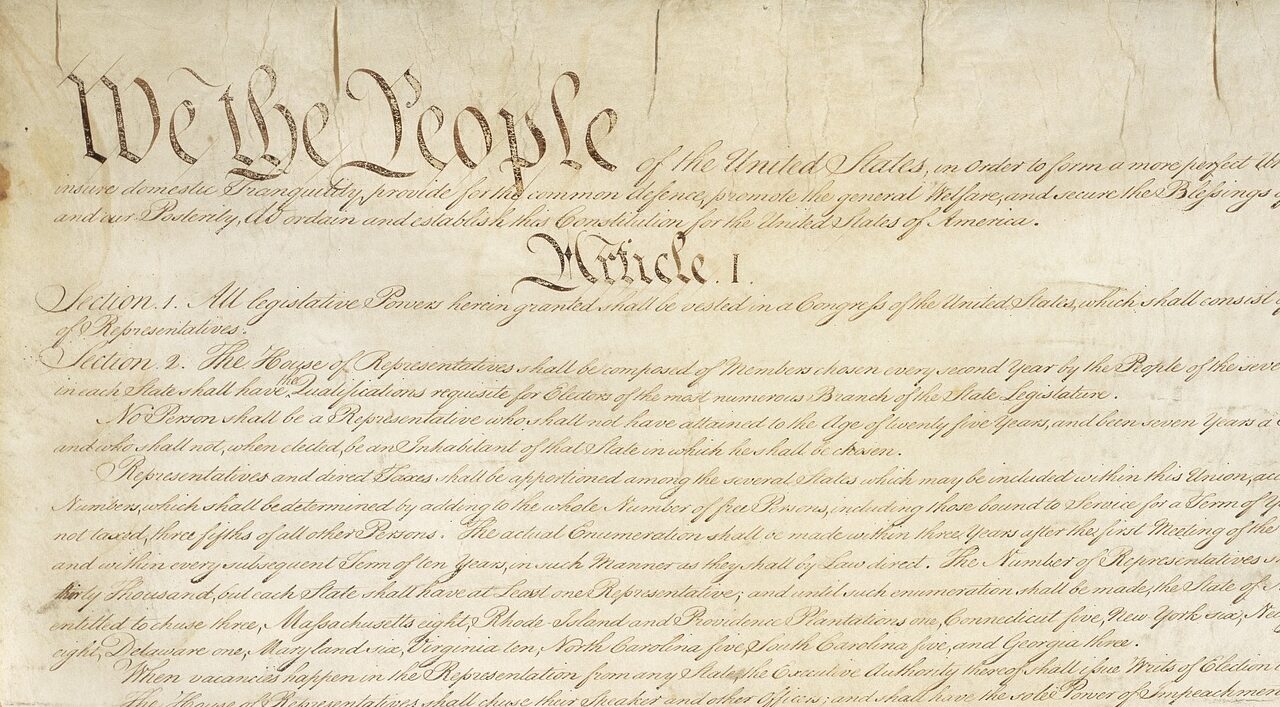How Louisiana’s Ten Commandments Law Distracts from Meaningful Education Policy

On June 19, Louisiana Governor Jeff Landry signed a new law requiring public K-12 classrooms and state-funded universities to display a poster-sized version of the Ten Commandments in what is referred to as a “large, easily readable font”. The controversial law goes into effect this fall. Soon after the bill was signed, several groups—led by parents, civil liberties advocates, and even members of clergy—filed suit to challenge the law on several grounds, including the First Amendment’s Establishment clause:
“Congress shall make no law respecting an establishment of religion, or prohibiting the free exercise thereof…”
While often debated, separation of church and state here in the United States has been established legal precedent—until most recently with a series of challenges before the current conservative Supreme Court. If you’re the type of person who enjoys reading long legal rulings, check out Kennedy v. Bremerton School District or Carson v. Makin for additional context. That being said, I’m not a legal scholar, nor is further dissecting the law the primary point of this blog.
Putting aside the First Amendment issues, the new Louisiana law puts educators and learners in a truly impossible position. But what isn’t being discussed as much is the distraction it creates, a distraction from addressing the legitimate challenges facing our education system.
Why This Law is Bad for Educators
While proponents of the legislation have made the case that the Ten Commandments are a historical document—much like the Magna Carta or Declaration of Independence—it’s not hard to envision teachers feeling pressure to tailor lessons in a completely different way. Consider this scenario: A classroom teacher has developed a lesson plan on 13th century Asia, highlighting the rise (and fall) of empires and their complex systems of belief. Enter the new Louisiana law. It’s hard to escape the mandated display looming over your classroom as you teach. Maybe that teacher now feels pressured to dedicate an inordinate amount of time to Judeo-Christian influences in the region, potentially alienating students from other faiths. And can you imagine the parent calls if the teacher attempted to critically analyze the Ten Commandments in class?
The ongoing legal challenges will put educators at the center of religious freedom debates, as if they needed another thing to worry about in 2024. We should be focusing on things like the teacher pipeline, professional development and mentorship, curricular autonomy, and teacher pay. Instead, the law creates legal anxiety and forces educators to navigate sensitive religious topics with limited resources.
Why This Law is Bad for Learners
Think this law is only problematic for teachers? Think again. There is a bevy of considerations when it comes to our nation’s students. For one, students from non-religious backgrounds and experiences undoubtedly will feel marginalized, which could have a direct impact on learning. At a time where students are already grappling with isolation, bullying, and mental health concerns, this law has the potential to exacerbate these concerns. This is the opposite of creating safe, inclusive learning spaces.
Second, the law could serve as a roadblock to intercultural competence and understanding and, in general, exposure to more diverse ideas and beliefs. I could also see this being incredibly confusing for younger students, who are already balancing so many complex concepts early in life. Are the Ten Commandments a historical text? Divinely prescribed? Are they part of our legal system? Perhaps that confusion is a big part of the original intent of the law.
Just Another Distraction
Education advocates who really care about important issues like teacher recruitment and retention and learner equity should see this law as another distraction from meaningful policy progress. At a time when teachers are already facing a long list of challenges, the Ten Commandments law adds yet more stress and more uncertainty to their plates.
Second, the law diverts attention from what should be the purpose of education: developing critical thinking skills and preparing students for the future—in work and in life. This law prioritizes indoctrination and division over equipping students with the tools they need to succeed in a globalized world.
Finally, this law creates unnecessary divisiveness among our school communities. It only alienates students (and their families) from non-Christian faiths and undermines the basic principle of religious freedom. Our focus should be on fostering a culture of learning based on inclusivity and psychological safety, not promoting one specific set of religious beliefs.
While Louisiana is consistently ranked toward the bottom of U.S. states in education, its leaders should be focusing on policies that ensure our classrooms are well-funded and prepare students for the future. Instead, they choose distraction and division, ultimately hindering our students’ ability to thrive in an increasingly complex world.
Howie Berman, MA, CAE is a principal and co-founder of Learning Curve Partners, an independent consulting group which connects and empowers educators and education organizations to be leaders and lifelong learners in pursuit of their missions. Learn more at learningcurvepartners.com and follow this blog for more thoughts on the education space.


